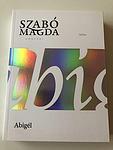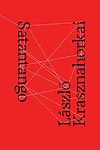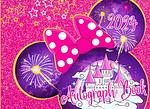The Greatest Hungarian, Turkish "Fiction" Books Since 1970
Click to learn how this list is calculated.
This list represents a comprehensive and trusted collection of the greatest books. Developed through a specialized algorithm, it brings together 300 'best of' book lists to form a definitive guide to the world's most acclaimed books. For those interested in how these books are chosen, additional details can be found on the rankings page.
Genres
Countries
Date Range
Reading Statistics
Click the button below to see how many of these books you've read!
Download
If you're interested in downloading this list as a CSV file for use in a spreadsheet application, you can easily do so by clicking the button below. Please note that to ensure a manageable file size and faster download, the CSV will include details for only the first 500 books.
Download-
1. Fateless by Imre Kertész
"Fateless" is a harrowing account of a Hungarian Jewish boy's experiences in Nazi concentration camps during World War II. The protagonist is sent to Auschwitz, then Buchenwald, and finally to a factory in Zeitz, enduring brutal conditions and witnessing unimaginable horrors. Despite his experiences, he maintains a detached, almost indifferent perspective, focusing on the mundane aspects of life in the camps, which further highlights the absurdity and horror of the situation. The novel explores themes of identity, survival, and the arbitrary nature of fate.
-
2. My Name is Red by Orhan Pamuk
Set in the late 16th century Ottoman Empire, this novel explores the conflict between East and West, tradition and innovation, through the lens of miniaturist painters. When a renowned artist is murdered, his colleagues must solve the mystery while grappling with the changes in their art brought about by the western Renaissance. This complex narrative intertwines love, art, religion, and power, offering a deep exploration of the struggles between old and new.
-
3. The Notebook: The Proof ; The Third Lie : Three Novels by Agota Kristof
"The Notebook: The Proof ; The Third Lie : Three Novels" is a trilogy of novels that follow the lives of twin brothers, living through the harsh realities of war, separation, and betrayal. The first novel, "The Notebook," tells the story of their survival as children in a rural town at the end of World War II. The second book, "The Proof," continues their story into adulthood, exploring the effects of their traumatic childhood. The final book, "The Third Lie," delves into the complexities of their relationship and the secrets they kept from one another. The trilogy is a poignant exploration of identity, love, and the enduring bond of brotherhood.
-
4. Snow by Orhan Pamuk
Set in the small city of Kars in northeastern Turkey, the novel follows a Turkish poet who has spent several years in political exile in Germany. He returns to Turkey during a time of political unrest, with tensions high between religious and secular factions. As he becomes embroiled in the turmoil, he also becomes involved in a romantic relationship with a beautiful woman. The city is cut off from the rest of the world by a relentless snowstorm, leading to a series of tragic events. The novel is a contemplation on love, faith, and the tensions between tradition and modernity.
-
5. Celestial Harmonies by Peter Esterhazy
"Celestial Harmonies" is a historical novel that tells the story of the aristocratic Esterházy family, tracing their lineage from the late Middle Ages to the present day. The narrative is divided into two parts, with the first part featuring a series of vignettes about the family's ancestors, while the second part focuses on the experiences of the narrator's father under the Communist regime in Hungary. The novel is characterized by its intricate structure, complex themes, and lush, poetic language, offering a rich exploration of Hungarian history, family dynamics, and the human condition.
-
6. The Door by Szabó, Magda
"The Door" by Magda Szabo is a novel about the relationship between two women, one of whom is a writer and the other is her housekeeper. The story explores themes of class, power, and the complexities of human relationships. As the two women become increasingly intertwined, their relationship becomes more and more complicated, leading to unexpected consequences for both of them. The novel is a powerful exploration of the human condition, and a poignant reminder of the importance of understanding and empathy in our interactions with others.
-
7. Epepe by Ferenc Karinthy
The book revolves around a linguist who finds himself inexplicably trapped in a nightmarish city where he cannot understand the language or communicate with the inhabitants. Despite his expertise in languages, the protagonist's skills are rendered useless in this alien environment, leading to a series of Kafkaesque encounters as he desperately tries to make sense of his surroundings and find a way back home. His isolation is compounded by the city's indifferent bureaucracy and the strange, often absurd, customs of its citizens, turning his ordeal into an existential struggle for identity and understanding in the face of an incomprehensible world.
-
8. The Melancholy of Resistance by László Krasznahorkai
"The Melancholy of Resistance" is a surreal and philosophical novel set in a small Hungarian town that becomes isolated by a massive snowstorm. The arrival of a mysterious circus, featuring a stuffed whale and a silent, enigmatic leader, brings with it a wave of change and unrest. The narrative explores themes of chaos, resistance, and the struggle for power through the perspectives of various townsfolk, including a reclusive music theorist and a former political dissident. The novel is known for its complex, long-winded sentences and its bleak yet profound examination of human nature and society.
-
9. Life is a Carawanserai Has Two Doors I Went in One I Came out the Other by Emine Sevgi Özdamar
This novel follows the life of a young Turkish girl growing up in the 1950s and 60s, exploring her experiences in a rapidly changing society. The protagonist navigates the complexities of her family life, her struggle with her identity and her eventual emigration to Germany. The book explores themes of female empowerment, cultural clashes, and the immigrant experience, all told through a unique narrative style that blends reality with dreams and folktales.
-
10. Abigél by Szabó, Magda
Set against the backdrop of World War II in Hungary, the novel follows a young girl sent to a strict boarding school in the countryside by her father, a high-ranking general who fears for her safety amidst the war. Struggling to fit in and feeling abandoned, she eventually discovers the school harbors deep secrets, including the mysterious "Abigél," a statue that seems to be at the center of a clandestine operation protecting those persecuted by the war. As the protagonist navigates the complexities of adolescence, authority, and the harsh realities of her time, she learns valuable lessons about trust, loyalty, and the power of community in the face of adversity.
-
11. Indul A Bakterház by Sándor Rideg
"Indul A Bakterház" is a Hungarian novel that follows the life of a young boy growing up in a rural village during the interwar period. The narrative centers around the boy's experiences in a strict, yet comical, educational system and his interactions with a cast of eccentric characters, including his family members and schoolmates. Through a series of humorous and poignant episodes, the novel paints a vivid picture of village life, exploring themes of adolescence, tradition, and the universal journey of growing up amidst the challenges of poverty and societal change.
-
12. Give Me Back My Mountains by Albert Wass
"Give Me Back My Mountains" is a poignant historical novel that delves into the struggles and resilience of a Transylvanian noble family during the tumultuous period of World War II and the subsequent communist takeover. The narrative explores themes of loss, identity, and the unyielding human spirit, as the family confronts the confiscation of their ancestral lands and the erosion of their cultural heritage. Through vivid characters and rich descriptions, the book paints a picture of a bygone era, highlighting the personal and collective challenges faced by those who lived through the seismic political shifts of the 20th century in Eastern Europe.
-
13. Satantango by László Krasznahorkai
"Satantango" is a bleak and atmospheric novel set in a small Hungarian village, where a group of desperate and disillusioned characters become entangled in a web of deception, corruption, and despair. As they navigate through the decaying landscape and their own inner demons, the novel explores themes of power, greed, and the human capacity for both cruelty and redemption. With its rich prose and intricate storytelling, "Satantango" offers a haunting and thought-provoking reflection on the human condition.
-
14. Helping Verbs Of The Heart by Peter Esterhazy
"Helping Verbs Of The Heart" by Peter Esterhazy is a thought-provoking and introspective novel that delves into the complexities of love and relationships. Through a series of interconnected stories and characters, the book explores the various ways in which love can shape and define our lives. With lyrical prose and deep emotional insight, Esterhazy examines the power of love to both heal and wound, and ultimately leaves readers pondering the profound impact that love can have on the human heart.
-
15. Thistle by István Fekete
"Thistle" is a heartwarming tale of a young golden eagle navigating the trials and tribulations of the natural world. Set against the backdrop of the majestic Hungarian landscape, the story follows the protagonist from its time as an eaglet in the nest through its journey to adulthood. The narrative delves into the challenges faced by the eagle, including the search for food, the threat of predators, and the struggle for survival in the changing seasons. Along the way, the eagle encounters a host of other animals, each with their own stories, contributing to a rich tapestry of wildlife and the intricate balance of nature. The book is a celebration of resilience, independence, and the beauty of the wild, offering readers a glimpse into the life of one of nature's most impressive birds of prey.
-
16. Berji Kristin by Latife Tekin
The book is a poignant exploration of the lives of squatters in the outskirts of Istanbul during the 1970s and 1980s. Through a blend of magical realism and stark social commentary, it tells the story of a community of rural migrants who, in search of better prospects, build a shantytown named "Flower Hill" on the city's periphery. The narrative delves into the daily struggles, dreams, and communal bonds of these individuals as they grapple with the harsh realities of urban poverty, political upheaval, and rapid modernization that threaten to erase their makeshift neighborhood. The novel is a tapestry of interconnected tales that together paint a vivid portrait of resilience and survival amidst systemic marginalization.
-
17. Régimódi Történet by Szabó, Magda
"Régimódi Történet" is a poignant narrative set in early 20th-century Hungary, focusing on the life of a young girl from a noble family. As she grows up, she witnesses the decline of her family's fortunes and the changing social order following World War I. The novel explores themes of love, loss, and the passage of time, as well as the impact of historical events on individual lives. Through the protagonist's eyes, the reader experiences the challenges of adapting to a new era while clinging to the values and traditions of the past. The story is a rich tapestry of personal and historical transformation, illustrating the resilience of the human spirit in the face of adversity.
-
18. Ne Féljetek by Anna Jókai
"Ne Féljetek" is a poignant reflection on the human condition, set against the backdrop of a society grappling with the oppressive weight of a totalitarian regime. The narrative delves into the lives of individuals who, amidst the pervasive fear and silence enforced by the state, find themselves wrestling with the moral complexities of courage, resistance, and the yearning for freedom. Through a tapestry of interconnected stories and characters, the book explores the subtle acts of defiance and the resilience of the human spirit in the face of an unyielding political landscape, ultimately offering a testament to the enduring power of hope and the unquenchable desire for change.
-
19. Pete Pite by Gábor Nógrádi
"Pete Pite" is a children's book that follows the adventures of a young boy named Pete, who is known for his insatiable curiosity and inventive spirit. Living in a small village, Pete's inquisitive nature often leads him into amusing and sometimes challenging situations. With his trusty sidekick, a dog named Pite, Pete embarks on a series of escapades that teach him valuable life lessons about friendship, responsibility, and the importance of imagination. Through his experiences, Pete not only solves problems and helps his friends but also grows and learns about the world around him.
-
20. Für Elise by Szabó, Magda
The novel revolves around the life of a woman named Elise, who, after the death of her husband, discovers a series of letters that reveal hidden aspects of her marriage and her husband's past. As she delves into the contents of the letters, Elise is forced to confront the illusions and truths of her relationship, as well as her own identity. Set against the backdrop of a changing society, the story explores themes of love, betrayal, and the complex layers of human relationships, ultimately leading Elise on a poignant journey of self-discovery and redemption.
-
21. The Black Book by Orhan Pamuk
The novel focuses on a man searching for his wife in Istanbul, who disappeared without a trace. In his search, he discovers a secret, surreal world in the city and starts to understand his wife's involvement in political activism. The narrative is interwoven with stories from a column written by his wife's half-brother, which the protagonist believes may hold clues to her disappearance. The book is a complex exploration of identity, storytelling, and the role of literature in society.
-
22. A Book Of Memories by Peter Nadas
"A Book of Memories" is a complex narrative that weaves together the lives of a young Hungarian intellectual, his friends, and lovers, set against the backdrop of Eastern Europe during the Cold War. The novel delves into themes of memory, history, and identity, exploring the protagonist's personal relationships and his struggle with his own sexuality. Rich in philosophical and psychological insights, the book is a tapestry of stories within stories, where the past and present intertwine, and characters search for meaning in a world marked by political turmoil and social change.
-
23. Jadviga Párnája by Pál Závada
"Jadviga Párnája" is a historical novel set in a Hungarian village at the turn of the 20th century. It delves into the life of a young woman named Jadviga, who is of Polish descent, and her marriage to a Hungarian man, András. The narrative unfolds through a series of letters, diary entries, and other documents, painting a vivid picture of rural life, social norms, and the personal struggles of the characters. The novel explores themes of love, fidelity, identity, and the complexities of human relationships against the backdrop of a society grappling with change and the influences of modernity.
-
24. The Forty Rules of Love by Elif Shafak
This novel intertwines two parallel narratives, one set in the 13th century and one in the modern day. The contemporary story follows a discontented American housewife who, while working as a reader for a literary agency, comes across a novel about the 13th-century poet Rumi and his spiritual mentor, Shams of Tabriz. As she delves into their story, she uncovers Shams' forty rules of love and begins to question her own life and relationships. The historical narrative, on the other hand, explores the transformative friendship between Rumi and Shams, and how their bond revolutionized Rumi's poetry and outlook on life.
-
25. The Book Of Fathers by Miklós Vámos
"The Book of Fathers" chronicles the lives of twelve generations of men from a Hungarian family, spanning over 300 years from the 18th century to the modern day. Each chapter focuses on one descendant, capturing the historical and personal challenges they face, from the rise and fall of empires to the intimate struggles of love and loss. The novel weaves a tapestry of Hungarian history and the family's legacy, marked by a mystical diary that is passed down from father to son, which possesses the power to influence the fate of its keeper. Through the generations, the book becomes a symbol of the family's heritage and the enduring connection between the past and the future.
Reading Statistics
Click the button below to see how many of these books you've read!
Download
If you're interested in downloading this list as a CSV file for use in a spreadsheet application, you can easily do so by clicking the button below. Please note that to ensure a manageable file size and faster download, the CSV will include details for only the first 500 books.
Download












